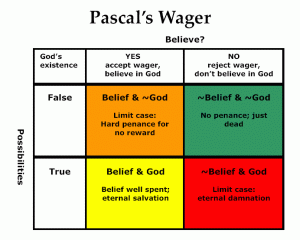“Escaping from bullshit,” in one important sense, is an elliptical expression for “escaping from bullshit beliefs.” But if you believe something, it seems that you don’t recognize it as a bullshit belief. If you did, you wouldn’t believe it. So, let us assume that there may be among your many beliefs some bullshit beliefs. Why make this assumption? Because you recognize that others have beliefs which are incompatible with your beliefs, and incompatible beliefs can’t be both true; so, one of you has to have some bullshit beliefs. Is it you?
Most of the beliefs we have we inherited from our culture. Others we obtained through observation, hearsay, and authority. It comes from listening to people we encounter, news sources, magazines, television, and now the internet.
So, if someone asks you why you believe what you do, you may answer that you learned about it from Bill, or you heard it on the radio, or you read about it on the internet, or it is in your sacred book.
The response may be: “OK, I understand the source of your information, but how do you know that this information is true?”
And instead of offering a justification for their belief, people sometimes say: “I choose to believe it.” And it is sometimes said to others: “You shouldn’t believe this,” or “you shouldn’t believe him.”
The implication is that you can choose to believe or not to believe. But, is it possible to choose to believe or not to believe?
A very detailed and insightful essay on this topic was written by William P. Alston, with the esoteric title, “The Deontological Conception of Epistemic Justification” (1988).
Assume that you are convinced by Pascal’s Wager that it is better to believe that God exists (in other words, you want to believe that God exists), but you don’t believe that God exists. Can you choose to believe that God exists?

